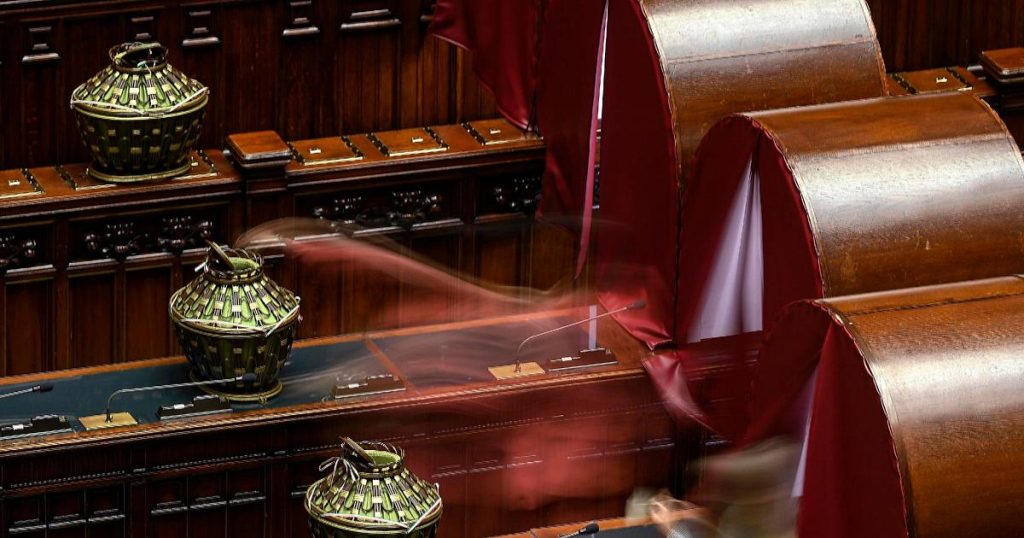A black smoke rose on the judge of the Constitutional Court as the Parliament convened to vote saw 339 blank ballots, 14 void ones, and 9 missing votes. A tenth vote will be necessary. Alongside the voting for the judge of the Constitutional Court, Minister of Justice Carlo Nordio, speaking to journalists at the Chamber, mentioned his desire for a referendum on the separation of careers. He stated that the majority is “united” on the issue. Regarding the reform for the separation of magistrates’ careers, Nordio outlined a timeline to complete the double reading by July 2025. He emphasized the importance of having the double reading as soon as possible, and in the event of a lack of a qualified majority, the issue will proceed to a referendum. He believes that on a sensitive and controversial topic like this, it is appropriate for voters to have a say through a referendum.
The push for a referendum on the separation of magistrates’ careers signifies a shift towards direct democracy in Italy. Minister Nordio’s stance reflects a belief in the importance of involving the electorate in decisions on critical issues. The proposed referendum would allow citizens to express their views on a matter that directly impacts the judiciary system. By empowering voters to participate in the decision-making process, the government aims to enhance transparency and accountability in policymaking. This move towards increased citizen participation through referendums highlights a commitment to democratic principles and fostering a more engaged and informed electorate.
The discussion around the separation of magistrates’ careers has sparked debates on the implications of such a reform. Proponents argue that separating the careers of magistrates would improve the efficiency and independence of the judiciary system. By having distinct career paths for judges and prosecutors, it is believed that there would be a reduction in potential conflicts of interest and a clearer separation of roles. Additionally, proponents suggest that this reform could enhance the overall quality and credibility of the judiciary by ensuring judges are solely focused on interpreting and applying the law. However, critics have raised concerns about the potential drawbacks of this reform, including the disruption of existing systems and processes, as well as the impact on judicial autonomy and impartiality. The call for a referendum on the issue indicates a recognition of the need to engage the public in the decision-making process to address these complex and multifaceted concerns.
Minister Nordio’s commitment to the referendum on the separation of magistrates’ careers underscores the government’s dedication to democratic values and principles. By advocating for direct participation of citizens in important decisions, the government aims to strengthen the democratic process and promote greater transparency and accountability. The decision to potentially hold a referendum on this contentious issue reflects a recognition of the need to involve the electorate in shaping policies that impact the judiciary system. This move towards increased popular participation through referendums signals a commitment to fostering a more engaged and empowered citizenry in Italy. As the debate on the separation of magistrates’ careers continues, the government’s willingness to seek the input of the voters highlights a commitment to democratic governance and citizens’ rights to have a say in critical matters affecting the legal system.
In conclusion, the ongoing discussions and debates surrounding the separation of magistrates’ careers in Italy reflect a broader shift towards direct democracy and increased citizen participation in decision-making. Minister Nordio’s support for a referendum on this issue underscores a commitment to democratic principles and transparency in governance. By empowering voters to have a say on critical matters that impact the judiciary system, the government seeks to ensure that policies are reflective of the will of the people. The potential referendum on the separation of magistrates’ careers signifies a recognition of the complex and multifaceted nature of this issue and the need to engage the public in shaping the future of the judiciary system. Through this commitment to democratic values and practices, Italy aims to strengthen its democratic institutions and foster a more engaged and informed electorate.


